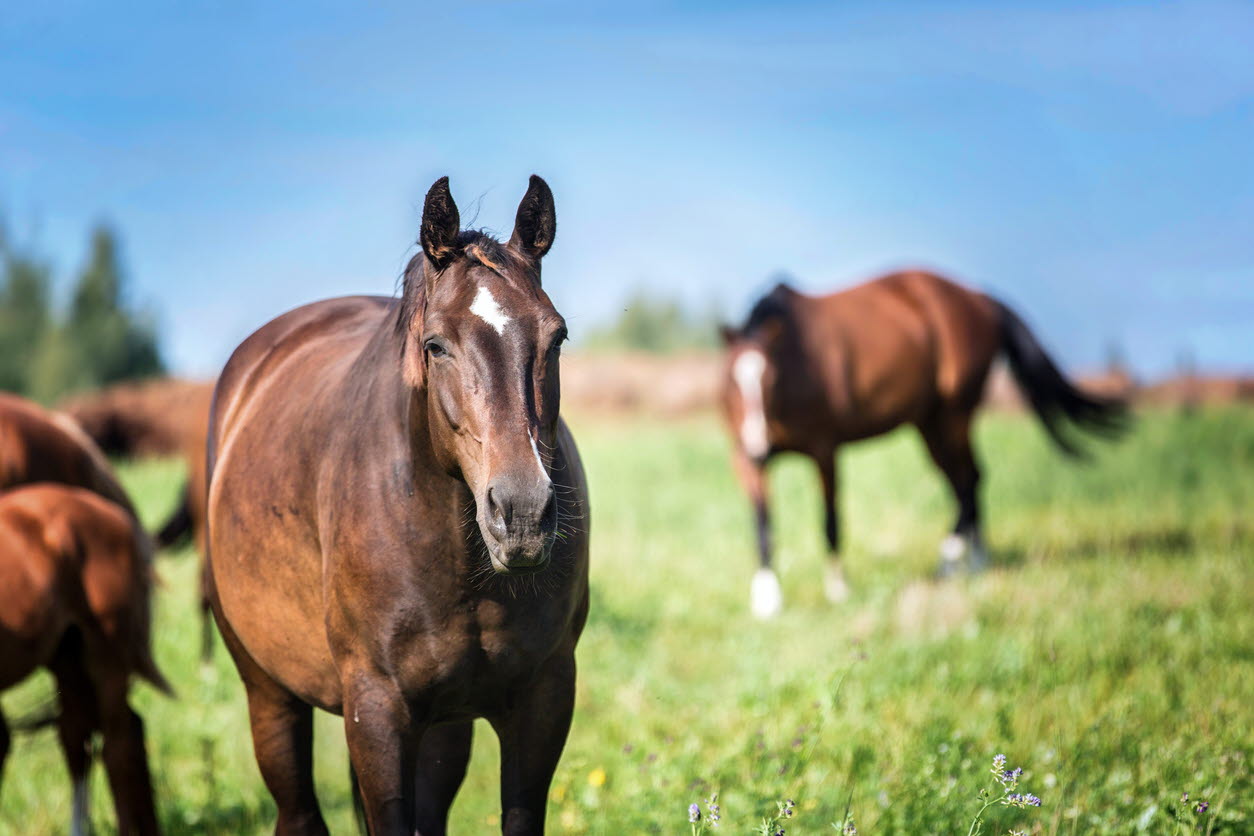Equine health

Graceful and beautiful creatures, horses can be kept for a variety of pursuits ranging from pony club and pleasure riding to equestrian sports like dressage and eventing, and elite events like thoroughbred racing. Keeping a horse healthy involves a substantial commitment of time and effort.
To ensure optimal equine health, there are a number of important factors you need to consider. This includes requirements for a balanced diet, dental health, parasite control, vaccinations, hoof care, grooming, exercise and enrichment.
A visit from your local equine veterinarian will provide invaluable advice regarding the health requirements specific to your horse. Some aspects of horse care will vary depending on your geographical location – such as appropriate vaccination programs, and there will also be different requirements based on the type of activities the horse will be undertaking and the type of facilities in which they are kept.
Horses require access to clean, freshwater and a good quality diet. The type of food you feed your horse will vary depending on the horse’s age, energy requirements and the type of activities that they are involved in. Generally, horses require access to roughage in the form of pasture and hay. Additional supplements such as vitamins and minerals will usually also need to be provided.
Regular parasite control is an important part of horse health management. Intestinal worms can damage the horse’s gut reducing the amount of nutrients absorbed from the diet, contributing to weight loss and poor coat quality. Worms can also migrate out of the intestines and cause tissue damage in other parts of the body.
Scheduling regular vaccinations for your horse is important to protect them from diseases such as tetanus, strangles and Hendra virus. Depending on your geographical location, your equine veterinarian will be able to provide advice on which vaccinations your horse requires and how often.
Tetanus is a bacterial disease to which horses are particularly susceptible because of their environment and tendency to suffer injuries. The Clostridial bacteria are found everywhere in soil and manure, and can gain access to the body through wounds.
Strangles is a highly contagious disease caused by the bacteria Streptococcus equi equi. Strangles infection in horses typically causes a fever, nasal discharge and sometimes painful abscesses near the throat.
Hendra virus is a disease transmitted by flying foxes. Horses become infected by eating food contaminated by flying fox urine, saliva or birthing membranes. Humans can become infected from infected horses. Your equine veterinarian can provide a vaccination for your horse, and it is important to note that there is no vaccine available for people.
Regular dental care is vital to good horse husbandry. Annual dental examination performed by an equine veterinarian is recommended. Dental problems can have a negative effect on performance, behaviour, body condition and overall health.
Another important area of equine health is hoof care. Depending on what activities your horse is involved with, your veterinarian and farrier can provide specific advice around regular hoof trimming and whether your horse may require fitting with horseshoes.
Horses are social and athletic creatures, so it is also important to ensure that they have regular enrichment activities including social interaction with other horses, and regular exercise to help them stay happy and healthy. For more information on equine health, contact your local equine veterinarian.
